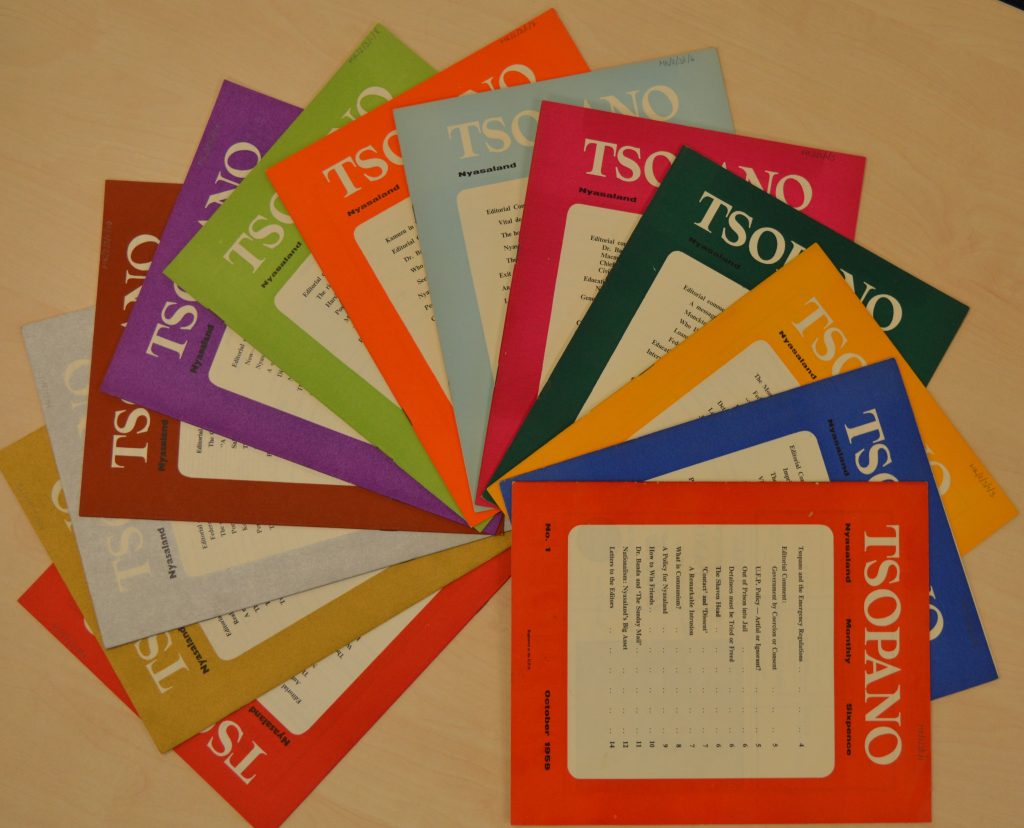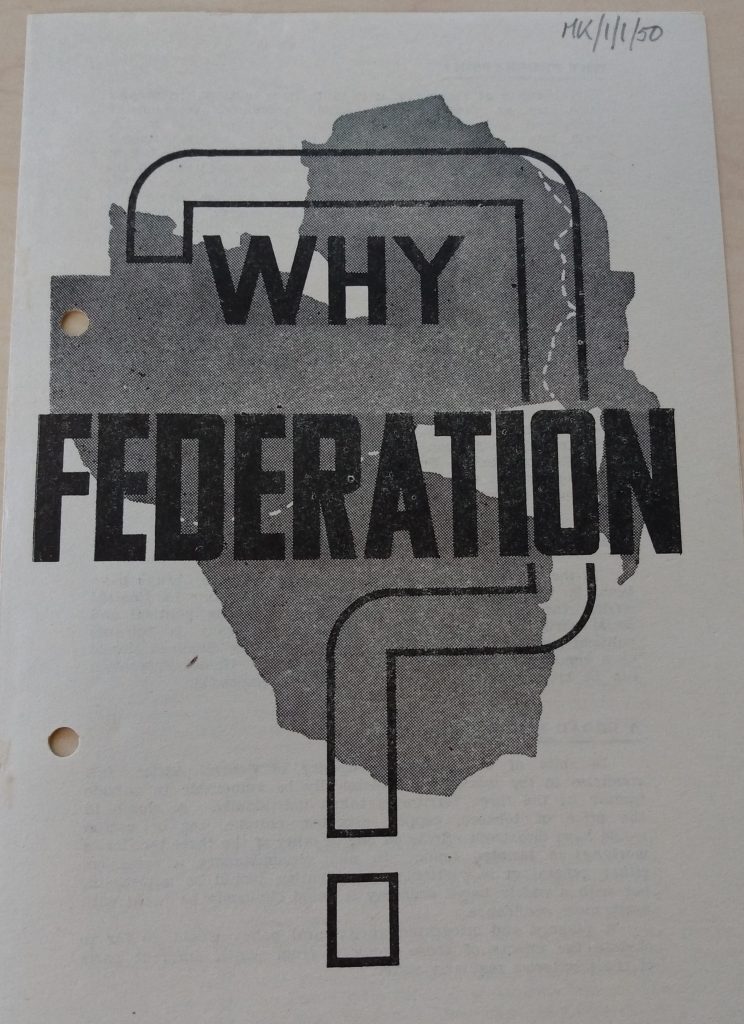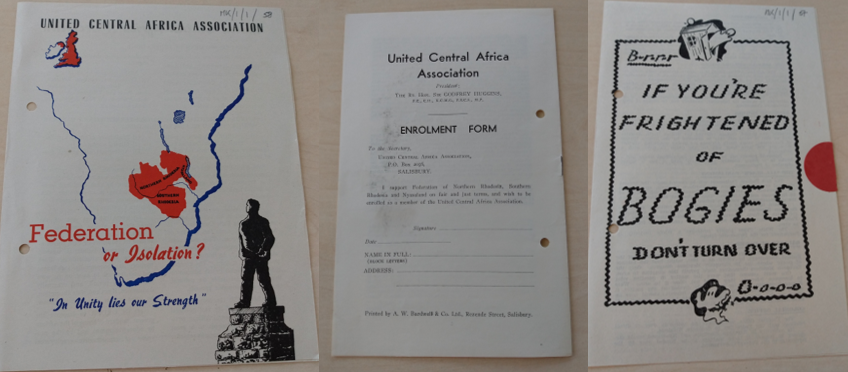As this year’s #Archive30 draws to a close, the final theme is #WhyArchives? What an excellent question! Earlier this month we asked some of our users to write about their favourite items from our collections for #FavouriteItem on the 2nd April and one of our users seemed to have highlighted beautifully why we think of archives as being so special and so key for research. So here is our last guest blog post for April, from Brooks Marmon, a PhD researcher at the University of Edinburgh who talks about the gaps that archives can fill and the treasure trove of little known primary sources archives can prove to be.
—
Over the course of my doctoral research, I’ve enjoyed making several trips to Stirling for research in the extensive collection of Peter Mackay, a journalist and activist who played a significant, albeit unheralded role in the independence struggles in Malawi and Zimbabwe as well as supporting wider post-colonial development efforts across southern Africa. Participation in two ‘Freedom Road Workshops,’ hosted by Stirling celebrating Mackay’s contributions to the region also provided welcome opportunities for networking and exchanging ideas.
The Mackay Archive is substantial and chock-full of fascinating documents and materials spanning critical events across southern Africa during the Cold War era. I’ve only skimmed the surface of the collection, but fascinating material that I’ve encountered includes a courtroom doodle by Herbert Chitepo, Southern Rhodesia’s (colonial Zimbabwe) first black lawyer, the first letterhead of Zimbabwe’s current ruling party (ZANU-PF) after it was established in August 1963, and the behind the scenes correspondence concerning Tsopano, a newsmagazine edited by Mackay from 1959 – 1961.

However, for my research purposes, some of the most fascinating items I’ve found in the Mackay Archive covers an earlier period. Mackay emigrated to Rhodesia in the late 1940s and it was nearly a decade before he emerged as a committed anti-colonial revolutionary.
In the early 1960s, a radical Mackay was jailed by the Rhodesian authorities for refusing to register for military service. However, a decade earlier, Mackay, as a junior administrator and journalist, rubbed shoulders with those who soon became his oppressors. Mackay wrote for the Rhodesian Farmer, the organ of the Rhodesian National Farmers’ Union, the bedrock of the colony’s white farming community.
He became more overtly ensconced in establishment political circles in 1952 and 1953 when he joined the staff of the United Central Africa Association (UCAA). The UCAA successfully lobbied for the federation of three British colonies – Southern Rhodesia, Northern Rhodesia and Nyasaland. It was led by the Southern Rhodesian Prime Minister, Godfrey Huggins, and its membership included a number of Rhodesian cabinet members and MPs. The Association disbanded after Southern Rhodesia’s overwhelmingly white electorate approved the establishment of the Federation of Rhodesia and Nyasaland at a referendum.

Mackay was so successful in organising branches for the UCAA on a voluntary basis that he was offered paid employment with the organisation, which he accepted.
It is the material on the UCAA in the Mackay Archive that I most treasure from my visits to Stirling. The UCAA, which temporarily subsumed the better-known Capricorn Africa Society (which also subsequently employed Mackay), has been rarely discussed in the academic literature. The few academic works which do mention the UCAA, lack depth and appear to overwhelmingly rely on newspaper accounts.
The Mackay papers add a wealth of new dimensions to the limited existing scholarly assessments of the UCAA. It includes membership forms for enrolment in the UCAA and pamphlets issued by them such as Why Federation?, Federation or Isolation?, and If You’re Frightened of Bogies.

Perhaps most valuably, Mackay has collected documents that provide a behind the scenes take on the activities of the UCAA. This includes a considerable collection of minutes of meetings of the UCAA’s Organising and Publicity Committee as well as the Association’s monthly progress reports.
As more scholars make use of the Mackay Archive, these documents will undoubtedly come to play a prominent role in informing our understanding of the Capricorn Africa Society, the activities of leading Rhodesian politicians and the dynamics that underpinned the creation of the Federation of Rhodesia and Nyasaland. More specifically, via the UCAA records, I’ve acquired a better understanding of just how transformative Mackay’s embrace of African nationalism actually was.
Brooks Marmon is a PhD student in the Centre of African Studies at the University of Edinburgh. His doctoral thesis examines the impact of African decolonisation on Southern Rhodesia during the era of the Federation of Rhodesia and Nyasaland (1953-63). Follow him @AfricaInDC.